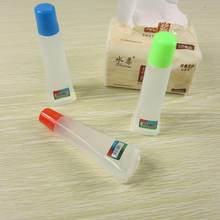leisure time

Vertex Pharmaceuticals has spent decades trying to develop molecules that reduce pain safely and potently, searching for success in a field its own executives have dubbed a graveyard for drug discovery. Detailed data published Wednesday lent support to that quest, with a pair of company-sponsored clinical trials showing an experimental non-opioid therapy reduced pain after surgery.
The drug, VX-548, blocks signals from pain-sensitive neurons before those electrical messages reach the brain. And in a pair of randomized trials, patients given a high dose of the oral medication after bunion surgery or abdominoplasty (a tummy tuck) reported less pain than those given a placebo. Those taking lower doses of the treatment showed no improvement compared to the placebo group, however.
advertisement
While the pain reduction measured by these Phase 2 trials was statistically significant, it’s unclear how meaningful the drug’s benefits were to patients, with a commentary accompanying the study describing the treatment effect as “small.” But the study authors noted that participants on a high dose of VX-548 were less likely to prematurely stop their treatment because it wasn’t working than those on placebo or participants given a combination of two common painkillers, acetaminophen and hydrocodone.

Unlock this article by subscribing to STAT+ and enjoy your first 30 days free!
GET STARTED Log InNext article: New Eli Lilly Alzheimer’s data poses Medicare coverage conundrum








